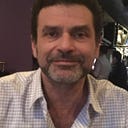I cite it often. It impacted me profoundly. It's a difficult book to read as the first part tells the stories of his time in Nazi death camps.
Here are the quotes I often use:
"Everything can be taken from a man but one thing: the last of human freedoms--to choose one's attitude in any given set of circumstances, to choose one's own way...between stimulus and response there is a space. In that space is our power to choose our response. In our response lies our growth and our freedom."
“it turned out there was a solution to their problem, an answer to their question, a meaning to their life.”
He's speakimg of his treating suicidal patients--he was a psychiatrist before and after the war.
"Even if things only take such a good turn in one of a thousand cases, who can guarantee that in your case it will not happen one day, sooner or later? But in the first place, you have to live to see the day on which it may happen, so you have to survive in order to see that day dawn, and from now on the responsibility for survival does not leave you."
"What was really needed was a fundamental change in our attitude toward life. We had to learn ourselves and, furthermore, we had to teach the despairing men, that it did not really matter what we expected from life, but rather what life expected from us. We needed to stop asking about the meaning of life, and instead to think of ourselves as those who were being questioned by life — daily and hourly. Our answer must consist, not in talk and meditation, but in right action and in right conduct. Life ultimately means taking the responsibility to find the right answer to its problems and to fulfill the tasks which it constantly sets for each individual."
